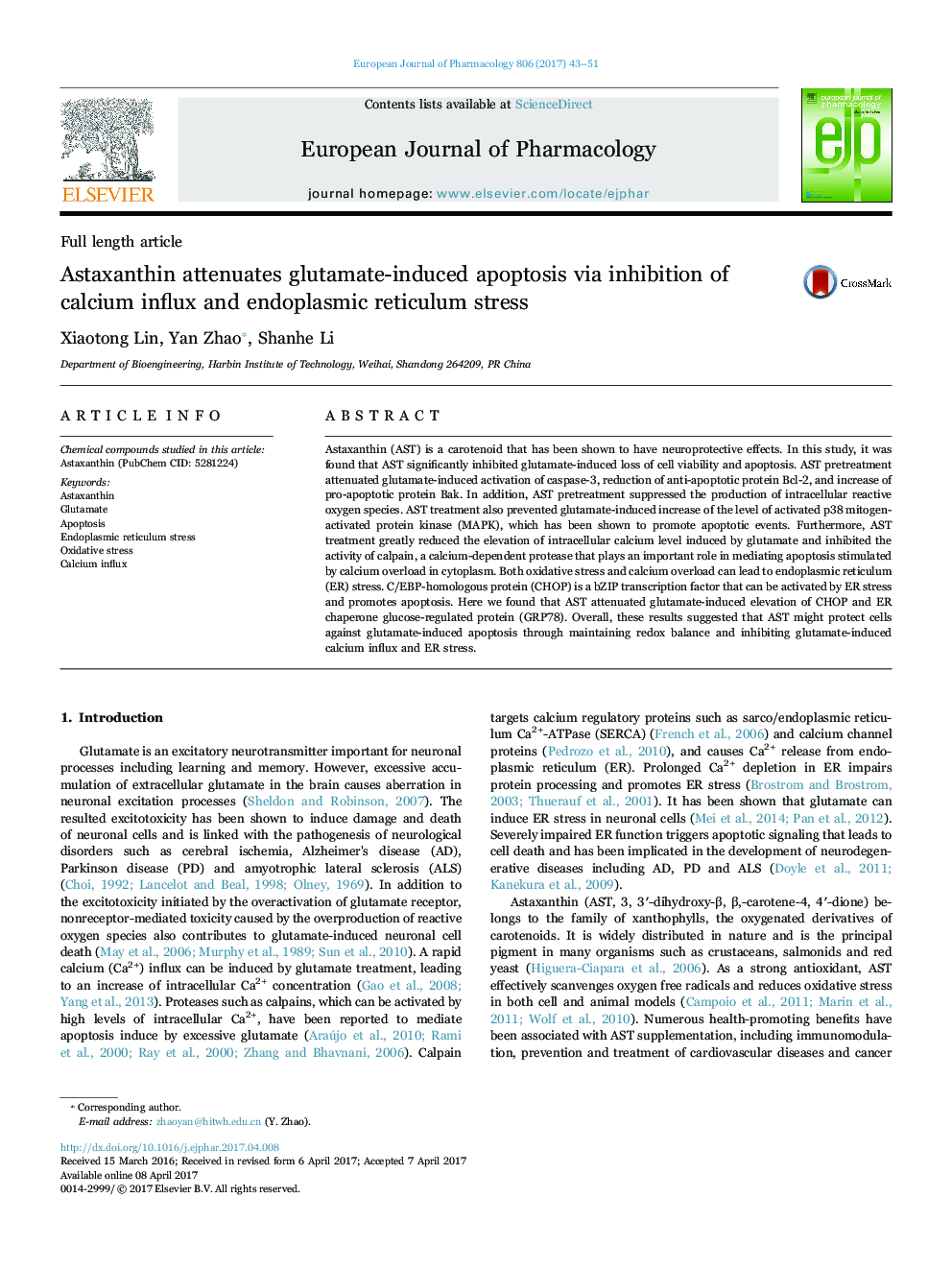| Article ID | Journal | Published Year | Pages | File Type |
|---|---|---|---|---|
| 5554654 | European Journal of Pharmacology | 2017 | 9 Pages |
Astaxanthin (AST) is a carotenoid that has been shown to have neuroprotective effects. In this study, it was found that AST significantly inhibited glutamate-induced loss of cell viability and apoptosis. AST pretreatment attenuated glutamate-induced activation of caspase-3, reduction of anti-apoptotic protein Bcl-2, and increase of pro-apoptotic protein Bak. In addition, AST pretreatment suppressed the production of intracellular reactive oxygen species. AST treatment also prevented glutamate-induced increase of the level of activated p38 mitogen-activated protein kinase (MAPK), which has been shown to promote apoptotic events. Furthermore, AST treatment greatly reduced the elevation of intracellular calcium level induced by glutamate and inhibited the activity of calpain, a calcium-dependent protease that plays an important role in mediating apoptosis stimulated by calcium overload in cytoplasm. Both oxidative stress and calcium overload can lead to endoplasmic reticulum (ER) stress. C/EBP-homologous protein (CHOP) is a bZIP transcription factor that can be activated by ER stress and promotes apoptosis. Here we found that AST attenuated glutamate-induced elevation of CHOP and ER chaperone glucose-regulated protein (GRP78). Overall, these results suggested that AST might protect cells against glutamate-induced apoptosis through maintaining redox balance and inhibiting glutamate-induced calcium influx and ER stress.
